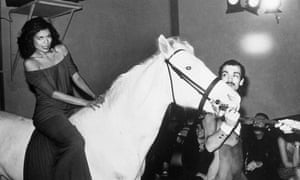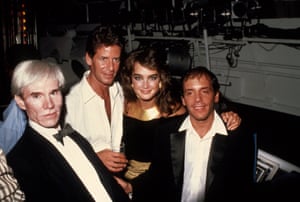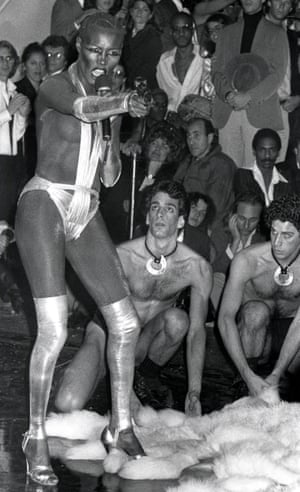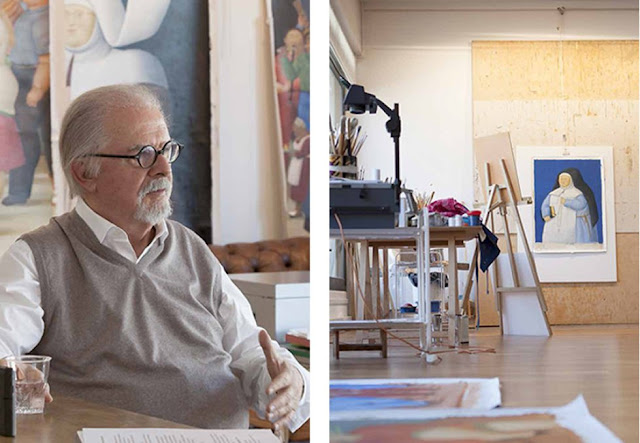 |
| Penelope Fitzgerald |
Penelope Fitzgerald: A Life by Hermione Lee – review
Hermione Lee has done a superb job, capturing the novelist's elusive personality and telling a complex, sometimes harrowing story
Philip Hensher
Friday 1 November 2013
W
hat does a novelist's career look like? A male novelist might have a short struggle, like Dickens or Waugh or James, then a big success and a series of novels of varying success and accomplishment; the great masterpiece comes 20 years in, when they are in their 40s or 50s. (Think of Mann or Naipaul.) They might have some kind of family connection to the world of letters, or acquire one and know how to exploit it. Women novelists often have a more complex path, perhaps interrupted by children and a more difficult relationship with literary fame; even without children, they are more likely to creep up on fame in a series of books.
Nowadays, of course, writing is often seen as a profession like any other. To take this year's Man Booker winner, Eleanor Catton, as an example of what might be seen as a novelist's ideal career in 2013: one does a degree in English literature, and immediately afterwards a master's degree in creative writing. Your first published novel is your MA thesis. Afterwards, you are given a post teaching creative writing in a university, and your second novel wins a major prize.
Not to criticise the excellent Ms Catton, but this model of a novelist's career is going to produce novelists with a narrow grasp of human experience, whose novels are increasingly going to have to come from historical research and meta-fictional game-playing and, ultimately, novels about creative writing degrees. For a different, though ultimately not tempting vision of a novelist's career, we might turn to Hermione Lee's excellent biography of Penelope Fitzgerald. Fitzgerald was, by general consensus, among the handful of great novelists in English after 1980. She had the misfortune of being not only over 45, but in her 70s and 80s when her great masterpieces first appeared. In an unusual turn of events, her daughter Tina published a novel 18 years before she first did. Tina was 10 years old. Fitzgerald would be 61. Surely, it was Tina who got the business of a novelist's career the right way round. What went wrong? More to the point – in the light of The Blue Flower, At Freddie's and The Gate of Angels – what went abundantly right?
It is easier to answer the first question than the second. Fitzgerald was born Penelope Knox in 1916 into a famous and brilliant family – her nobly eccentric account of her four uncles, The Knox Brothers, hardly overstates the case. One uncle was the saintly and ingenious Ronnie Knox, Evelyn Waugh's friend, Macmillan's tutor and the establisher of the rules of detective fiction, among other distinctions. Her father, EV("Evoe") Knox was the editor of Punch during its golden age of the 1930s and 1940s. Fitzgerald grew up in Hampstead, the granddaughter of a bishop with intensely literary interests: Harold Monro's Poetry Bookshop is so powerfully evoked in Fitzgerald's non‑fiction that one regrets the absence of the novel on the subject that might have followed her biography of Charlotte Mew. Up to a point, what followed was what might have been expected: a brilliant Oxford first, some work for the BBC, the creation and editing of an interesting literary magazine, a sparkling circle of friends. A novel from this superb mind would surely follow.
Instead, there was the abandonment of the Hampstead ménage with husband and three small children. There was a period in Southwold, Suffolk, working in a bookshop. They couldn't pay the grocery bills, and the household possessions were sold on the pavement outside their house. A period living on a decrepit barge in London, Fitzgerald having to teach in a crammer, ended when the decrepit barge sank. She had to live, with her daughters, in a hostel for the homeless before being rehoused in a council flat, going on with the immense grind of teaching and cramming. Only in the 1970s did she begin to publish books, first a pair of biographies and then novels, to quite rapid acclaim. She lived with her grown-up married children, in spare rooms, on sofabeds, in annexes. By then her husband Desmond had died.
Hermione Lee has unearthed the full story of the catastrophe that overtook the family from a mound of rumour and literary gossip – strikingly, the collected letters, edited by a member of her family, omitted any explanation of why the family was living on a barge and then in accommodation for the homeless. The name of the catastrophe was Desmond. Though plausible and, by many accounts, personally charming, Desmond was a feckless alcoholic who could not sustain much of a career as a barrister. Work must have dried up towards the end of the Hampstead period, and Desmond's income could not help them during the Southwold humiliation. Worse was to come. While they were living on the boat, he was discovered stealing and forging cheques from his chambers. He was disbarred and ordered to pay back £373 – money the family didn't have. London gossip always had it that he had been sent to prison, which was not, it turns out from Lee's investigations, accurate – his sentence was suspended. He was lucky to find a job working as a clerk for Lunn Poly, the travel agents.
"It sometimes strikes me that men and women aren't quite the right people for each other," Fitzgerald writes in The Bookshop, benevolently turning her experience in Southwold into the experience of a childless widow. What is striking about Fitzgerald's story is that her professional experience was seamless and well-considered before she met Desmond; it starts to move again very efficiently in the very last years of his life, and, once he died, her career took off. She published her first five novels between 1977 and 1982. Did she just need solitude? After Desmond's death, though she was only 60, there is not a whisper of any desire for another partner in life. There would have been no shortage of gentlemen happy to take on an acclaimed, brilliant novelist of impeccable manners and fascinating conversation. Yet she had learned her lesson, and now it was time for the books.
Whatever it was like to live through, one can't as a reader regret the immense delay and traumatic contributions of Fitzgerald's life. After the first, amusing fantasy, The Golden Child, her first novels mine her experiences with great concision and depth of psychological analysis born, surely, of long afternoons of boredom supervising in the crammers and in a Suffolk bookshop. The days on the barge, so hungry that she could sometimes be found eating blackboard chalk ("I felt I needed it"), bore some positive fruit. The Bookshop drew on Southwold; Offshore the period on the barge Grace; Human Voices the wartime BBC years; At Freddie's – in some ways the deepest and most wonderful of her books – the experience of the crammers, transformed into a stage school with an extravagant menagerie of posing prodigies. They are not simple statements, and far from romans à clef. They use the long-observed situation to penetrate into the mysteries of human manners.
There is no doubt, really, that Fitzgerald made an awful hash of her career, for the most part. It happened to her despite her very best efforts. Her novels were initially published by Duckworth, controlled by the beady-braying-claret-and-malice pair of Colin and Anna Haycraft. It is difficult to imagine Fitzgerald at home here, and her novels are not much like the brilliantly poisonous satires of Alice Thomas Ellis (AKA Anna Haycraft) or the music-hall raucousness of Beryl Bainbridge – Colin Haycraft's star novelist and mistress – other than in their concision. When Fitzgerald won the Booker prize for Offshore, she seems to have taken it for granted that Haycraft didn't really think her books were much good, and wrote to him thanking him for his effort, and saying that he would be relieved that she was now going to another publisher. Haycraft was, understandably, astounded by Fitzgerald's attitude, and put it down to cunning self-advancement, quite wrongly. She genuinely thought he had lost interest in publishing her. No doubt Haycraft had been going round sharing his disbelief at Offshore's success with most of London, but it was definitely a strange moment for the novelist to be convinced of her lack of success in the world.
Or was it a good, propitious moment? What followed, given admirable prominence in Lee's biography, was the devotion, verging on veneration, of a sequence of publishers. At the very end of Fitzgerald's life, I shared an editor with her, and well remember the immense respect and love of her publishers at Flamingo. In Richard Ollard, Stuart Proffitt and Philip Gwyn Jones, Fitzgerald had editors who would have done anything for her, and did. It was just as well, since her grasp of the business was so vague that she never employed a literary agent, despite being hopeless with money. (She "began to keep a regular (if idiosyncratic) account of her earnings in a notebook labelled 'My Takings'" only in 1992, we are told; "every so often these sums are annotated: 'I've no idea what this is for,' or 'Oh dear where is the Observer [cheque]? I'VE LOST IT.'") There is a comedy about her publishers trying to work out, with no input or, apparently, interest at all from Fitzgerald, what they should pay her as an advance.
What they were working on was a creative volte-face as noteworthy as Lucian Freud's shift from sable to hogshair brushes in the late 1950s. Fitzgerald's first five novels were stories of English life in her lifetime, drawing on her experience. Her last four are remote, dazzlingly complete and quizzical reconstructions of historical, or geographically remote reality: 1950s Italy (Innocence), just before the outbreak of the great war in Cambridge and Moscow (The Beginning of Spring), and finally, in her greatest novel, The Blue Flower, the German Romantic poet Novalis. They came at a point when a number of English novelists were discovering possibilities in the long-disdained historical novel, but they are peerless. They come not just from research – interestingly, in the light of their dense specificity, one of her editors says that she "didn't have an eye for detail" – but also from experience. We hear exactly how much it cost in the 1790s to cross the bridge at Weissenfels, and how much to take the train from Moscow to London before the revolution. What does not come from Bradshaw's Railway Guide, or from the archives, is the knowledge of what a clever boy feels his life is like in a dull small town, or what the stroke of love is like when a figure turns in a dusty room. The long years of frustration, of doing nothing, of serving the general good in unhistoric acts, as George Eliot put it, justified themselves.
In the difficult years, Fitzgerald could easily have taken to reviewing books and writing short fiction. She did a little – readers should prepare to allow their jaws to drop when they get to Lee's reproduction of "Jassy of Juniper Farm", a serial Fitzgerald wrote for a comic for younger children, Swift, in the 1950s. But a little dedication would have led to some comfort in an age when VS Pritchett could live in some style on short stories and book reviews. Why did she not? Could she perhaps not afford, at the family's worst, a typewriter? She would always have been a writer: she would have been a different one, and the distilled experience of those last books not quite the same.
There is a definite comedy about Fitzgerald's rueful eye falling on her success, when it is all rather too late to be thoroughly enjoyed. She carried on doing her duty by the literary world, and there is an amusing story here told by a novelist who was set on accompanying her when returning from a conference. She, on the other hand, was clearly determined, by travelling in second class, refusing a lift in a taxi, and heading down to the underground, to give him the slip. ("I do seem to have involved you in some low forms of transport.") I met her twice: she was very civil about a book of mine; I found her, personally, very daunting, without quite being able to account for the impression. Other people seem to have had the same experience.
Lee was a perfect choice as Fitzgerald's biographer. She has done a superb job, capturing an elusive personality and a complex, sometimes rather harrowing story. She managed to get a good deal out of Fitzgerald's three children, who one sometimes thinks were the people who saw the whole experience most clearly – certainly Fitzgerald's bad behaviour over her son Valpy's early but very happy marriage is given full coverage. (You feel that she might have understood why he wanted to find security in family life as soon as possible.) There is a surface of restraint and orderly decency in the life as it is told here; beneath it, the wildness and fury of the books, where girls' legs are hacked off at the knees to make them suitable companions for aristocratic dwarfs; where a Cambridge intellect falls in love helplessly with quite an ordinary nurse; where poetry happens, from who knows where. At the end of At Freddie's, we glimpse the violence and terror that a mind in love with the possibility of perfection can wreak, as the child actor Jonathan tries to perfect the stage leap in a Covent Garden back yard. "In the morning there would be someone to come and watch, and tell him whether he was right or not. Meanwhile he went on climbing and jumping, again and again and again into the darkness." Someone indeed came in the morning, for Fitzgerald and her writing career. By then she, like Jonathan, had been jumping into the darkness, trying to create perfection, for a good long night.









































